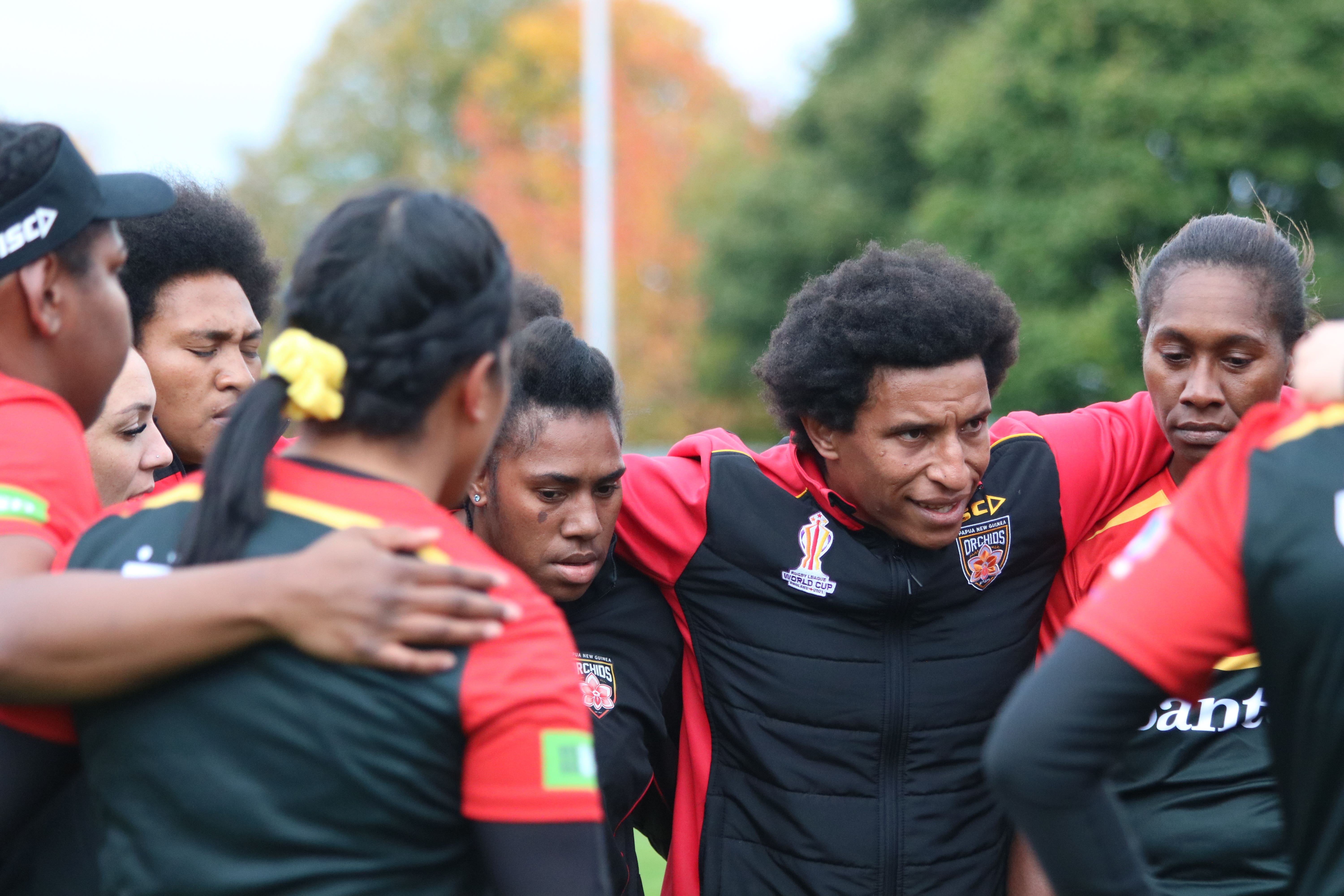Elsie Albert hopes Papua New Guinea can ‘change mindsets and empower girls’
The Orchids’ second appearance in a women’s World Cup kicks off against Canada at Headingley on November 1.

Your support helps us to tell the story
From reproductive rights to climate change to Big Tech, The Independent is on the ground when the story is developing. Whether it's investigating the financials of Elon Musk's pro-Trump PAC or producing our latest documentary, 'The A Word', which shines a light on the American women fighting for reproductive rights, we know how important it is to parse out the facts from the messaging.
At such a critical moment in US history, we need reporters on the ground. Your donation allows us to keep sending journalists to speak to both sides of the story.
The Independent is trusted by Americans across the entire political spectrum. And unlike many other quality news outlets, we choose not to lock Americans out of our reporting and analysis with paywalls. We believe quality journalism should be available to everyone, paid for by those who can afford it.
Your support makes all the difference.When Papua New Guinea’s women’s rugby league team made their debut appearance in a trial match in the country’s capital Port Moresby in 2017, they were greeted with a barrage of missiles and insults.
In a country ranked one of the worst in the world for gender-based violence, in which over 60 per cent of women and girls have been subjected to physical or sexual abuse, the emergence of the team nicknamed the Orchids was evidently too much for many to bear.
“After the game they told us to walk around and thank the crowd, and they threw water containers at us and called us names you never want to hear,” the team’s current vice-captain, Gloria Kaupa, recalled to the PA news agency.
“We knew something like that was going to happen, but we were still scared.”
The Orchids’ second appearance in a women’s World Cup kicks off against Canada at Headingley on November 1. Nine days later they face England at the same venue, looking to repeat their breakthrough win in Port Moresby in 2019.
Their emergence, in a country where violence against women was said to have reached “epidemic” levels in a 2021 Human Rights Watch report, is a story of bravery and hope.
Many squad members, especially those from the country’s remote provinces, have had to openly defy the wishes of deeply conservative family members, and societal and religious attitudes that frown upon women being involved in any kind of sport.
Orchids captain Elsie Albert, the only member of the squad with a contract to play in Australia’s Women’s NRL, had made the nation’s front pages before her parents even knew she had taken up the sport.
“I started playing rugby league when I left home to go to university,” Albert told PA. “When I was selected for a trial match for the Orchids in Australia in 2018, I told my parents I was going on a school debating trip.
“But when we were in Brisbane I scored a try, and the national newspaper back home put a big picture of me on the front page. I was so scared I didn’t answer a call from my father for the next two months.”
It's not just about me, it's about all the girls I'm representing back home, girls from a society where women are seen as second to men, where you have to be submissive and obey the higher power
The Orchids’ most significant breakthrough came in 2019, with a 20-16 win over England in the second of two Test matches played in the country. Instead of hurling abuse, a crowd of almost 10,000 rose to cheer a last-minute try by Shirley Joe that sealed their famous win.
“I still get goosebumps when I think of that try,” said Kaupa. “It was the moment that started to change everything. We earned more respect, more women and girls started to play rugby league and the game grew. But we know we still have a long way to go.”
Rugby league is Papua New Guinea’s national sport, with the men’s team, the Kumuls, inspiring fervent support. Earlier this year, Papuan government officials backed an ambitious bid for the nation to be granted a lucrative NRL franchise.
After its discouraging start, there are cautious signs of optimism for the women’s game too.
“I’m from Pangia in Southern Highlands Province, where at one time the sight of a girl playing rugby league would have led to real resistance,” said Albert.
“But the last time I went home I saw girls playing in my village, on a pitch covered with small pebbles. I don’t know how they do it, but I was amazed to see it and I believe that what we do can help change PNG as a whole.”
Those changes will have to start at the top in a country in which, until two women were elected earlier this year, was one of only three worldwide without a single female representative in its 118-strong parliament.
For the 26-year-old Albert, who completed her undergraduate degree to become a Bachelor in Tropical Agriculture, the Orchids’ second appearance at a World Cup represents another small but hopeful step towards a more inclusive future.
“It’s not just about me, it’s about all the girls I’m representing back home, girls from a society where women are seen as second to men, where you have to be submissive and obey the higher power,” said Albert.
“We are here to show that we are more than the cultural barriers that are imposed upon us. This is not just about rugby league. It is about changing mindsets and empowering girls and showing that we can do better.”